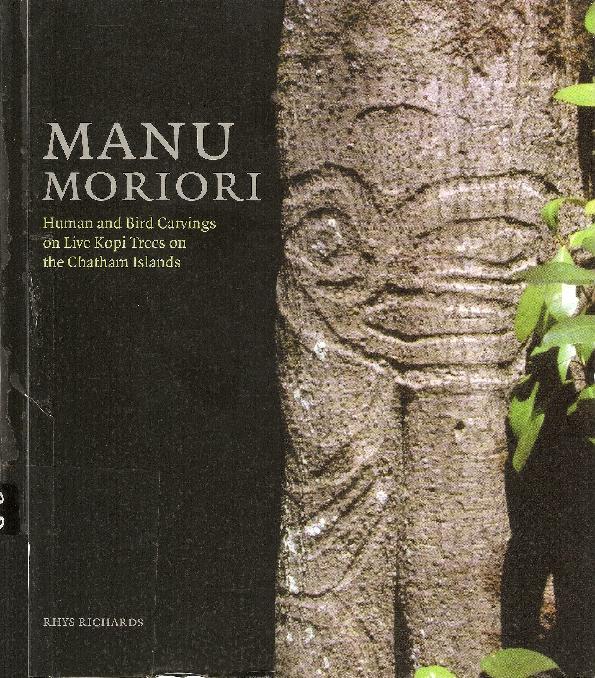Difference between revisions of "Manu Moriori"
(→Manu Moriori, Human and Bird Carvings on Live Kopi Trees on the Chatham Islands) |
(→Manu Moriori, Human and Bird Carvings on Live Kopi Trees on the Chatham Islands) |
||
| Line 1: | Line 1: | ||
== Manu Moriori, Human and Bird Carvings on Live Kopi Trees on the Chatham Islands == | == Manu Moriori, Human and Bird Carvings on Live Kopi Trees on the Chatham Islands == | ||
[[Image:Manu.jpg|right]]'''Rhys Richards 2007, Paremata Press Wellington.''' | [[Image:Manu.jpg|right]]'''Rhys Richards 2007, Paremata Press Wellington.''' | ||
| − | ISBN 0-95822013- | + | ISBN 0-95822013-74 |
| + | |||
| + | The Blurb: | ||
| + | |||
| + | Manu Moriori. Tree carvings made by Moriori long ago, remain alive today on Rekohu on only about 150 living trees. At the present rate of decline, all living carved trees could be dead within the next generation. Fortunately a substantial body of sketches and photographs pf the motifs carved by the Moriori long ago is available in Dunedin. The main motifss are squatting human 'hocker' figures which the Moriori called 'manu' or 'birds'. Before traditional Moriori society was overwhelmed by the Maori invasion of 1835, Moriori talked to these carvings as an interface through which to speak to their dead ancestors and to local gods and spirits that were not in this world. | ||
[[Category:Books]][[Category:Chatham_Islands]] | [[Category:Books]][[Category:Chatham_Islands]] | ||
Revision as of 10:12, 4 July 2009
Manu Moriori, Human and Bird Carvings on Live Kopi Trees on the Chatham Islands
Rhys Richards 2007, Paremata Press Wellington.ISBN 0-95822013-74
The Blurb:
Manu Moriori. Tree carvings made by Moriori long ago, remain alive today on Rekohu on only about 150 living trees. At the present rate of decline, all living carved trees could be dead within the next generation. Fortunately a substantial body of sketches and photographs pf the motifs carved by the Moriori long ago is available in Dunedin. The main motifss are squatting human 'hocker' figures which the Moriori called 'manu' or 'birds'. Before traditional Moriori society was overwhelmed by the Maori invasion of 1835, Moriori talked to these carvings as an interface through which to speak to their dead ancestors and to local gods and spirits that were not in this world.
